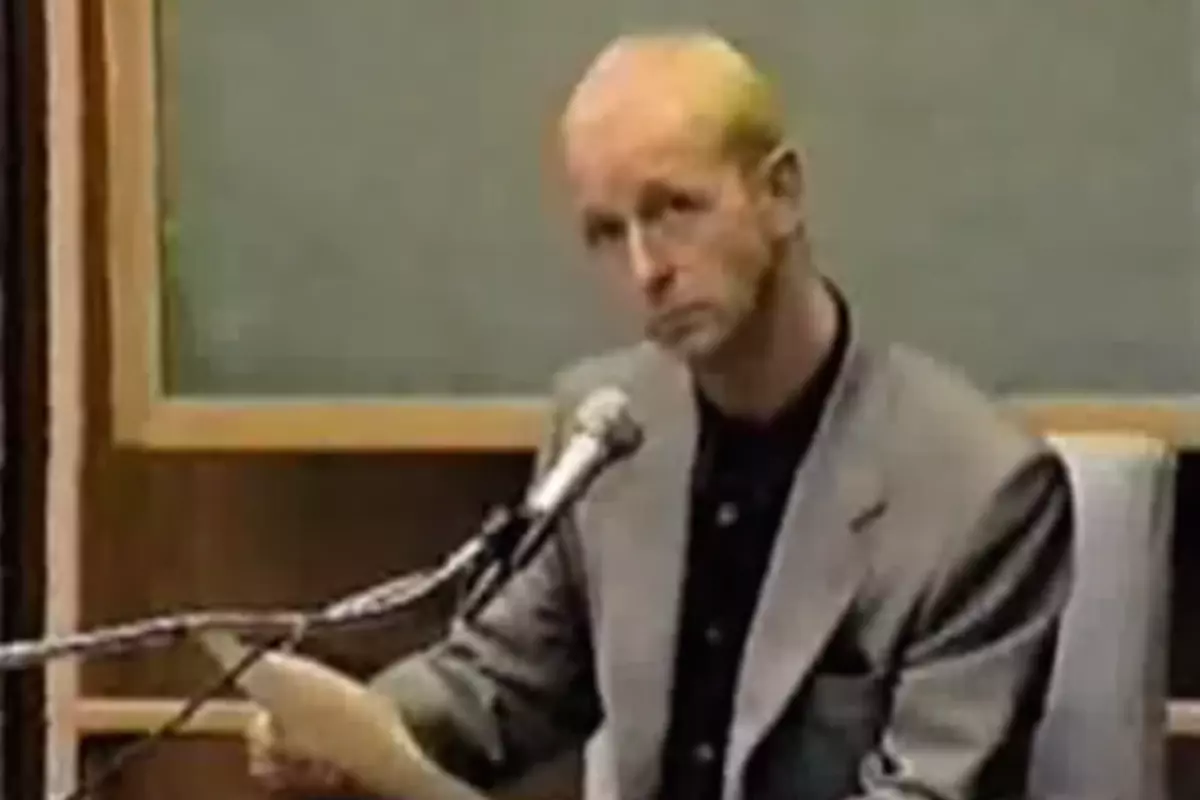In a series of tragic events that ultimately ended in a pair of deaths and an expensive, sensationalist trial, a pair of Nevada men ended a night of drinking, drugs and listening to music by heading to a local playground and shooting themselves on Dec. 23, 1985.
Searching for answers in their grief, the families of the boys – 18-year-old Raymond Belknap, who died at the scene, and 20-year-old James Vance, who maimed himself in the incident and survived for another three years – filed a lawsuit alleging that Belknap and Vance were driven to their desperate acts by subliminal messages hidden in Judas Priest’s Stained Class album. Roughly five years after the incident, the members of the band found themselves in court defending their music in a case that, along with the legal woes suffered by the members of 2 Live Crew the same year, gave voice to the concerns of many parents worried about rock and rap artists’ lyrics.
The legal protection of lyrics as free speech had already been tested (perhaps most notably during a roughly concurrent trial accusing Ozzy Osbourne of driving a fan to suicide with his song “Suicide Solution”), but the Priest case proceeded thanks to a legal twist: Without commenting on whether or not the songs in question actually included subliminal messages, the presiding judge ruled that so-called “subliminals” don’t constitute actual speech – and are therefore not protected by the First Amendment.
“I don’t know what subliminals are, but I do know there’s nothing like that in this music,” band manager Bill Curbishley complained before the trial. “If we were going to do that, I’d be saying, ‘Buy seven copies,’ not telling a couple of screwed-up kids to kill themselves.”
That rather compelling argument notwithstanding, the case proceeded to trial, with the plaintiffs’ attorney penning an op-ed for the Los Angeles Times that called the alleged messages (which were said to include the phrases “let’s be dead” and “do it”) an “invasion of privacy” and quoted Jimi Hendrix as saying, “You can hypnotize people with music and when they get at their weakest point, you can preach into their subconscious minds what you want to say.”
That Hendrix quote has elsewhere been attributed to Charles Manson’s brother Eddy, and the lawyer’s apparent misquote seems to reflect an overall loose approach to substantiating its claims. In an article for the Skeptical Inquirer, Dr. Timothy E. Moore – who served as a witness for the defense – rather drolly recalled one of the prosecution’s experts by suggesting, “It is possible that he undermined his own credibility with the court by opining that subliminal messages could be found on Ritz crackers, the Sistine Chapel, Sears catalogues, and the NBC evening news. He also asserted that ‘science is pretty much what you can get away with at any point in time.'”
Listen to Judas Priest Perform ‘Heroes End’
In fact, the band’s management coordinator Jayne Andrews later incredulously noted that the plaintiffs had at first planned to hinge their case on lyrics from the album – lyrics that didn’t exist. “It was originally about the track ‘Heroes End,'” Andrews recalled. “They tried to say the band were saying you could only be a hero if you killed yourself, till I had to give them the correct lyrics which is ‘why do heroes have to die?’… Then they changed their plea to subliminal messages on the album!”
Guitarist Glenn Tipton later conceded, “It’s a fact that if you play speech backwards, some of it will seem to make sense. So, I asked permission to go into a studio and find some perfectly innocent phonetic flukes. The lawyers didn’t want to do it, but I insisted. We bought a copy of the Stained Class album in a local record shop, went into the studio, recorded it to tape, turned it over and played it backwards. Right away we found ‘Hey ma, my chair’s broken’ and ‘Give me a peppermint’ and ‘Help me keep a job.'”
More damning was testimony from Vance himself, who told attorneys that he and Belknap were listening to Judas Priest when “all of a sudden we got a suicide message, and we got tired of life.” In a letter to Belknap’s mother, he later wrote, “I believe that alcohol and heavy-metal music such as Judas Priest led us to be mesmerized.” The Belknaps’ attorney argued that “Judas Priest and CBS pander this stuff to alienated teenagers. The members of the chess club, the math and science majors don’t listen to this stuff. It’s the dropouts, the drug and alcohol abusers. So, our argument is you have a duty to be more cautious when you’re dealing with a population susceptible to this stuff.”
Rob Halford Sings ‘Better by You, Better Than Me’ In Court
The label’s lawyers didn’t try to deny that Vance and Belknap led what they deemed “sad and miserable lives” – but they pointed the finger at the boys’ overall environment, upbringing, and life choices, going over how difficult it had been for both men to hold steady jobs or stay out of trouble with the law. The defense also attacked what White referred to as “junk science” in his article, with attorney Suellen Fulstone arguing, “The courtroom is no place for reveries about the unknown capacity of the human mind.”
Despite the apparently flimsy nature of the case, the trial went on for more than a month. “We had to sit in this courtroom in Reno for six weeks,” singer Rob Halford would subsequently lament. “It was like Disney World. We had no idea what a subliminal message was – it was just a combination of some weird guitar sounds, and the way I exhaled between lyrics. I had to sing ‘Better by You, Better Than Me’ in court, a cappella. I think that was when the judge thought, ‘What am I doing here? No band goes out of its way to kill its fans.'”
While the case was ultimately dismissed, Judge Whitehead was apparently not quite as charitable in his view as Halford would have liked to believe. Whitehead’s final ruling, in fact, determined that there were “subliminals” on the album, noting that the messages the plaintiffs argued had been buried in the mix were “only discernible after their location had been identified and after the sounds were isolated and amplified. The sounds would not be consciously discernible to the ordinary listener under normal listening conditions.”
Watch News Coverage of the Judas Priest Trial
What truly mattered in the judge’s view, however, was the question of whether subliminal messages could be used to make a person kill themselves. Noting that both of the deceased had been heightened suicide risks, Whitehead then argued, “The scientific research presented does not establish that subliminal stimuli, even if perceived, may precipitate conduct of this magnitude. … [T]he strongest evidence presented at the trial showed no behavioral effects other than anxiety, distress or tension.”
Ultimately, while Judas Priest and CBS Records avoided legal responsibility for the deaths, nobody really got what they wanted from the case – not the plaintiffs, who were unable to blame outside influences on a family tragedy, and not the defendants, who left the trial under a cloud of suspicion regarding “subliminals.” “It tore us up emotionally hearing someone say to the judge and the cameras that this is a band that creates music that kills young people,” Halford later admitted later. “We accept that some people don’t like heavy metal, but we can’t let them convince us that it’s negative and destructive. Heavy metal is a friend that gives people great pleasure and enjoyment and helps them through hard times.”
The Best Song From Every Judas Priest Album
Eighteen tracks that prove the British veterans never abandoned their core principles.
Gallery Credit: Martin Kielty
Judas Priest’s Real-Life ‘Spinal Tap’ Stories






